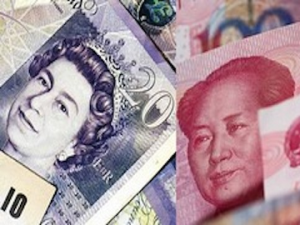
Trading between Chinese companies and the London Metal Exchange is on the increase as the LME is looking to hedge their exposure in order to handle the changing prices.
The Financial Times reports that the acceptance of renminbi as trading collateral will also improve international use of the Chinese currency as it currently accepts the dollar, sterling, euro and yen. Founded in 1877, the LME was bought by the Hong Kong Exchanges and Clearing (HKEx) in 2012 and after being approved by the Bank of England, offshore renminbi will be accepted as cash collateral.
In hopes of trading on the LME, Bank of China International (BOCI) is in the midst of forming a team in London that will deal with commodities so their industrial clients can hedge, according to the Financial Times. The LME have said that BOCI will be the first to use offshore renminbi as collateral the Bank of China will become a settlement bank.
Bank of China said in a statement that it will not work directly with the LME to create renminbi-denominated commodity products, but it is dedicated to being an international financial institution, as Huabin Wang, deputy general manager at Bank of China’s London branch said.
Alongside this, International and Commercial Bank of China is also involved with the LME and will trade further after their acquisition of Standard Bank’s London operations. Other smaller Chinese organisations have also joined the LME which has, since being sold to the HKEx, invested in more in electronic trading.
London, Paris and Frankfurt are all competing to become the offshore renminbi trading centre as interest grows in the payments sector. The renminbi, also known as the yuan, is slowly becoming more and more internationalised and has become available for foreign trade in the past ten years.







